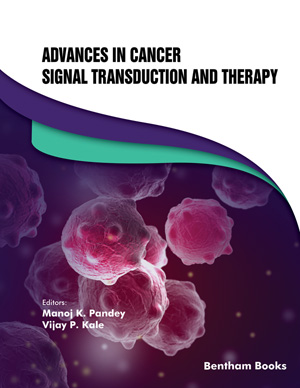Abstract
NF-κB (nuclear factor kappa-light-chain-enhancer of activated B cells) is a rapid-acting transcription factor. It is present in almost all cell types and is one of the primary responders to several stimuli such as stress, cytokines, radiation, chemotherapeutic drugs, bacterial, and viral antigens. Aberrant regulation and activation of NF-κB have been implicated in several cancers, inflammatory and autoimmune disorders, viral infections, and erroneous immune system development. This chapter summarizes the role of NF-κB activation specifically in hematological malignancies and various strategies developed for its potential pharmacological intervention to abrogate the process of carcinogenesis.



